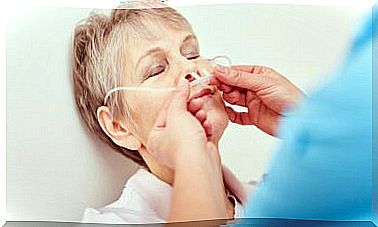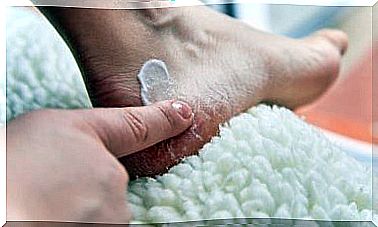The Voice In Old Age: 10 Steps To Keep It Healthy
As you reach old age, you may have noticed that your voice doesn’t sound like it used to. This change that the voice undergoes in old age is called presbyphony. It obeys the natural changes that occur in the larynx as a natural part of the aging process.
The larynx and vocal cords can vibrate more or less depending on the constitution of each person, but also on their age. Over time they lose elasticity and collagen fibers.
What is the vocal imprint?

Each person has their own voice, which identifies them and makes them unique and, for this reason, it must be taken care of. What is known as a vocal footprint is determined by the shape of the upper laryngeal tract, which is different for each person. For this reason, the resonance of the voice is also different, even in old age.
Hormones are involved in the process of voice change : testosterone in men and estrogens in women. In old age, testosterone decreases in men and the voice becomes acute again. While in women, on the contrary, it becomes slightly more severe from estrogens.
5 changes you can notice in your voice in old age
As you age, your voice can take on a very different character. Although many adults retain their youthful voice into old age, there are some common changes that may be noticed:
- Sounds thinner : the sound of the voice is less resonant. The vocal cords within the larynx become thinner and less flexible. This is because they lose muscle over time and don’t vibrate like they used to.
- Your voice sounds rougher : your voice requires effective vibration for its sound to be clear. Therefore, anything that interferes with the closure of the strings and is harmful to the larynx will result in a harsh and hoarse voice.
- Sounds less loud : aging also affects the projection and volume of the voice. Also, people with altered respiratory systems may notice that their voices are lower.
- Change in tone : Changes in tone can also be due to atrophy of the muscles in the vocal cords and, in women, it can be due in part to hormonal changes.
- Vocal fatigue: If your voice starts out strong but fades throughout the day, vocal fatigue may be to blame. Like any fatigue, voice fatigue is related to use.
10 tips to take care of your voice in old age

Prevention is the best remedy to avoid voice problems and take care of it. Here are some tips to take care of your voice and prevent pathologies that can affect the organs of the voice:
- Don’t force your voice and don’t yell.
- Avoid very noisy places and do not try to speak above the noise when you are in them.
- Do not smoke or stay in smoky environments, they irritate the larynx.
- Try not to clear your throat loudly.
- If you have a cold, allergy or cough frequently, consult a specialist to receive the appropriate treatment.
- If you suffer from hoarseness or hoarseness, and it lasts more than 10 days, go to the specialist.
- Hydrate properly : you should drink about two liters of water a day. In this way, the mucosa that covers the vocal cords will be properly hydrated.
- Get adequate rest: body fatigue is reflected in the voice, especially if you need the voice for your work.
- Whenever possible, try not to speak for more than four hours in a row, or sing for more than two, as it damages the vocal cords.
- Limit alcohol and caffeine intake, as they dehydrate the vocal folds. Also, try to maintain a balanced diet avoiding spicy foods and dairy products that can affect your voice.
Conclution
On the change of voice in old age, not enough is known yet to specify a prevention strategy. Although the practice of good hygiene and following the advice we have given you will help you preserve your voice in old age.









